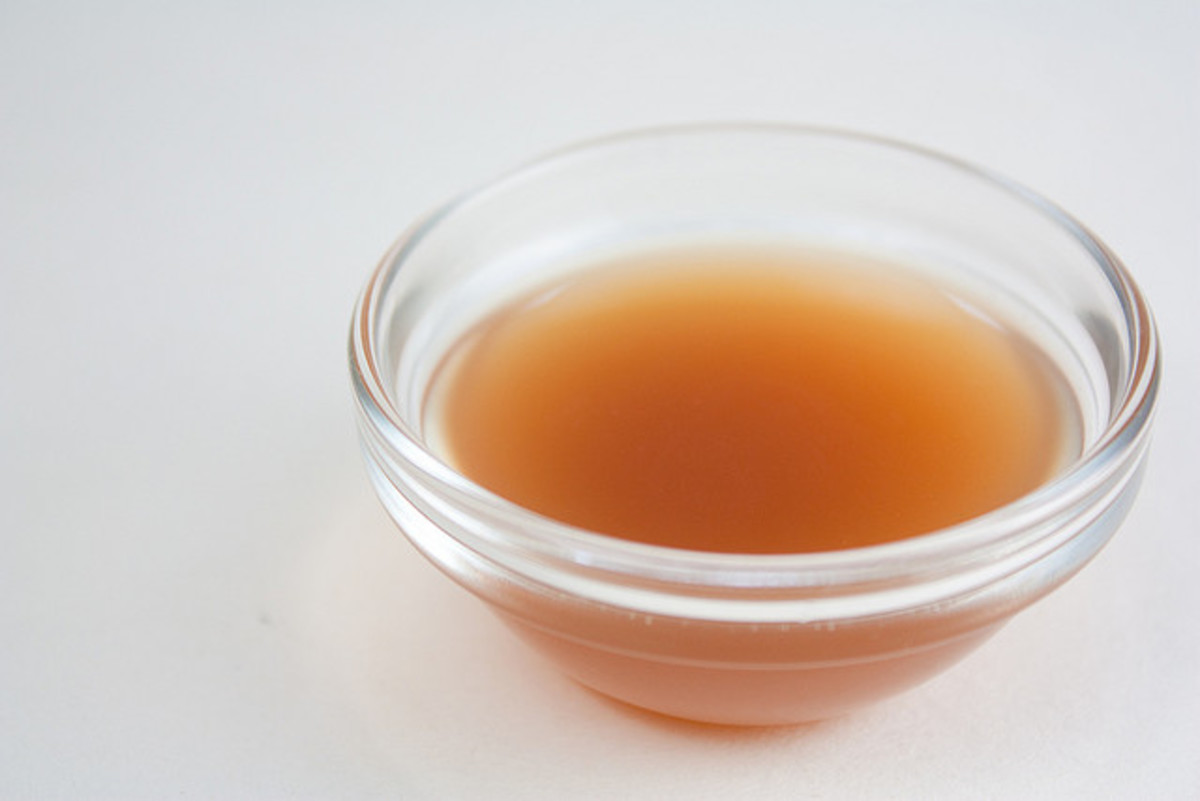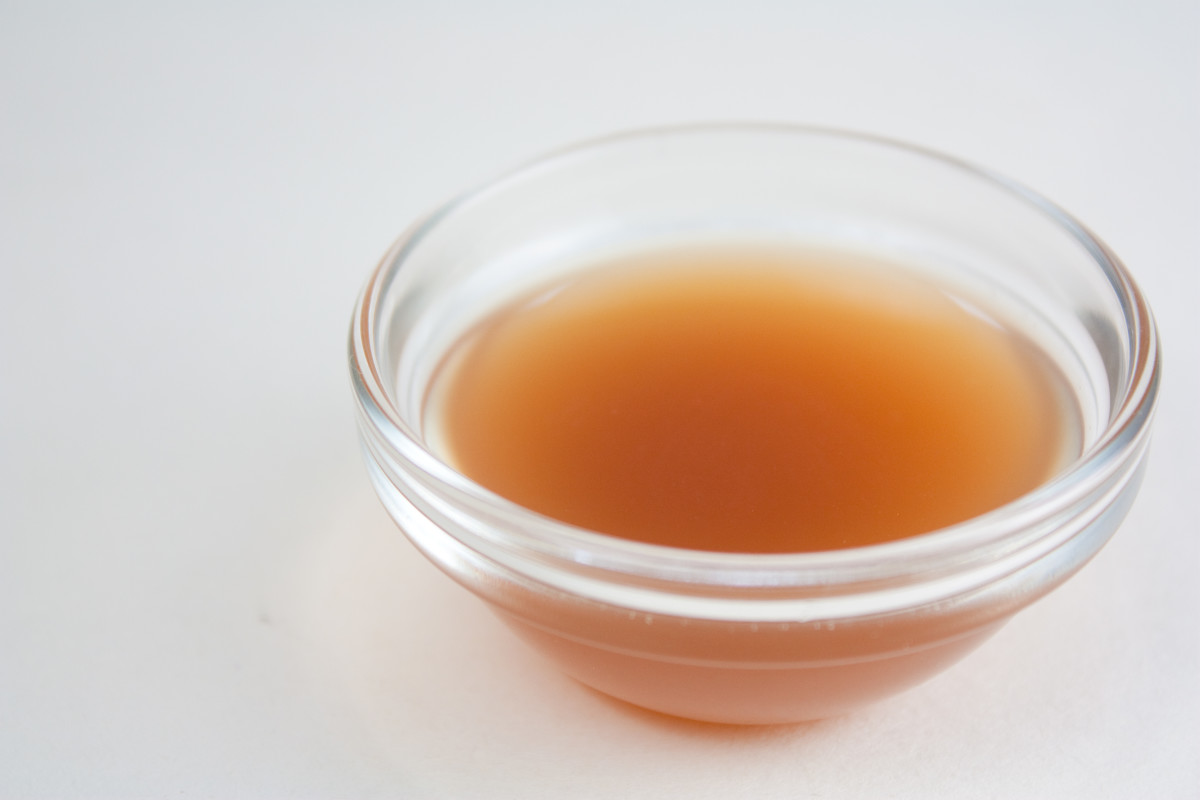Raw Organic Apple Cider Vinegar Health Benefits
Why Apple Cider Vinegar Is So Good!
If you spend much time reading up on natural health or natural health foods, you've probably run across the many health benefits of apple cider vinegar. Attributed with many health benefits, from weight loss to acne treatment, apple cider vinegar is one of the most well-known natural health supplements.
Does apple cider vinegar – especially raw apple cider vinegar – really live up to all the hype? What are the facts behind this popular folk remedy, and how effective is it?
What is Raw Apple Cider Vinegar?
First of all, the health benefits associated with apple cider vinegar are usually associated with the raw, unpasteurized version that you find in health food stores. Raw organic apple cider vinegar is produced by fermenting apples inside a wooden barrel, and has a cloudy appearance with apple residue floating at the bottom. The clear variety in a typical grocery store is not associated with the same health benefits.
How the Hype Surrounding Apple Cider Vinegar Began
The use of vinegar as a natural treatment for ailments has a long history. Even the father of western medicine, the ancient Greek physician Hippocrates, used vinegar to treat his patients for a variety of problems. Samurai warriors in Japan drank vinegar to make them strong in battle; American soldiers during the Civil War used vinegar to treat scurvy and other problems.
Apple cider vinegar didn't become truly famous, however, until 1958, when Dr. DC Jarvis of Vermont wrote a book calledFolk Medicine. In it, he claimed that the old-timers in Vermont successfully used apple cider vinegar to treat migraines, chronic fatigue, arthritis, diabetes, and more with nothing more than apple cider vinegar. The book is still in print today.
Nearly three decades later, an Alabama farmer named Jack McWilliams, created a combination of apple cider vinegar and fruit juice that he called “Jogging in a Jug”. He claimed it cured his own heart disease and arthritis, and that it reduced the risk of cancer. The FDA ordered the product destroyed in 1995 because the claims McWilliams made were unproven. Jogging in a Jug also still exists today, with new labeling that meets FDA demands.
What's in Apple Cider Vinegar?
Nutritional analysis of apple cider vinegar reveals a much different story than what its proponents claim. A tablespoon of apple cider vinegar contains less than one ram of carbhoydrate, tiny amounts of calcium, iron, magnesium, sodium, copper, manganese, and phosphorous, and only 15 mg of potassium. There are no vitamins, amino acids, or fiber in a tablespoon of apple cider vinegar at all.
What about the “mother of vinegar” -- the cloudy residue said to contain helpful bacteria? Considering that vinegar is often used as an antibacterial agent, it is highly unlikely that apple cider vinegar contains any living bacteria.
Don't Throw Out Apple Cider Vinegar Yet
Although apple cider vinegar is doubtlessly over-hyped, it does have some very real health benefits that are backed up by legitimate scientific studies. Here are a few of them:
- Apple cider vinegar and blood sugar: The old-timers in Vermont might have been right about using apple cider vinegar to combat diabetes. A 2007 study of 11 people with type 2 diabetes showed that two tablespoons of the vinegar at night lowered morning glucose levels by 4 – 6%.
- Apple cider vinegar and cholesterol: A 2006 study with rats showed that apple cider vinegar does indeed lower cholesterol. However, there has not been a similar study done with human subjects.
- Apple cider vinegar and weight loss: Vinegars of all types have been used as a way to curb appetite for many years. In 2005, a study showed that people who had a spoonful of vinegar with their meal were more likely to feel satisfied than those who did not. In other words, vinegar – not just apple cider vinegar in this case – may actually help curb your ferocious appetite.
The Bottom Line
When it comes down to it, there's nothing wrong with taking raw organic apple cider vinegar as an additional health supplement. It does have some proven benefits, and anecdotally appears to have many more. What you should not believe, however, is that apple cider vinegar is particularly high in potassium, minerals, or nutrients, or that apple cider vinegar is a miracle cure for all ailments.
With that being said, however, the risks of apple cider vinegar are really quite low. The vinegar can be a tasty addition to your salad dressing, and in small amounts it makes a nice tonic that can help to regulate blood sugar levels.
Apple cider vinegar is but one tool in your overall arsenal of natural health remedies. It is not a miracle-worker as its vendors claim, but when used in combination with a health diet and exercise, it is a beneficial addition.






